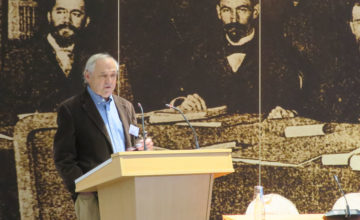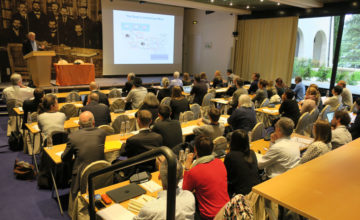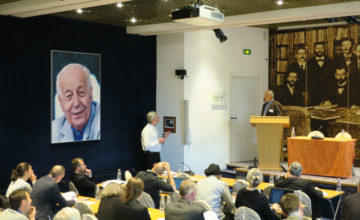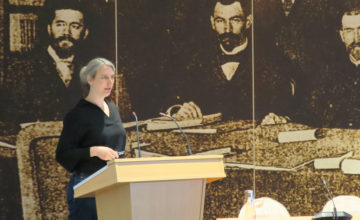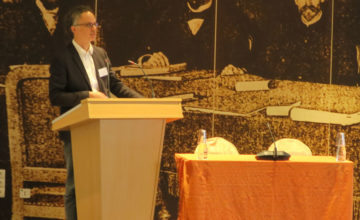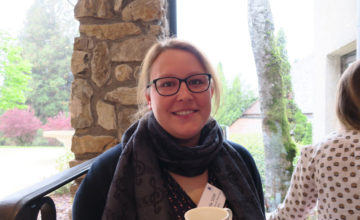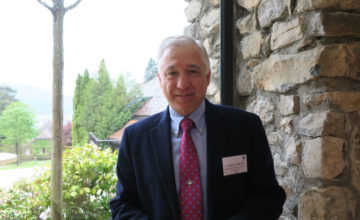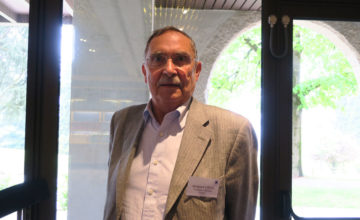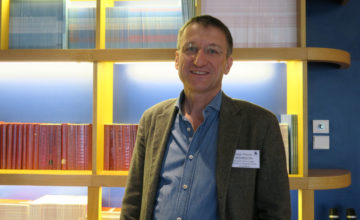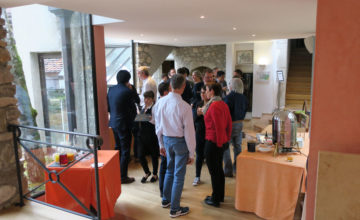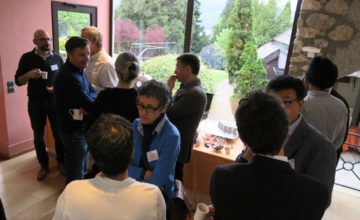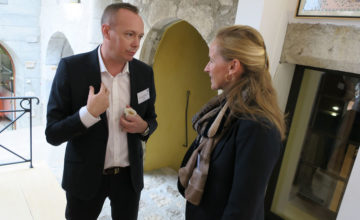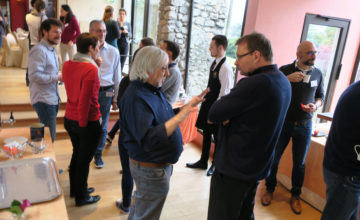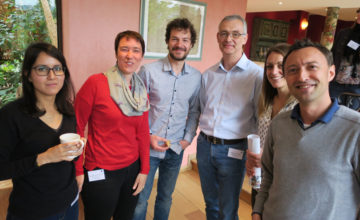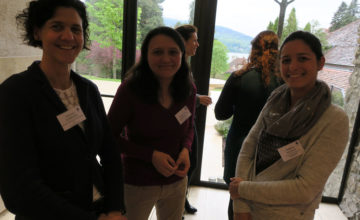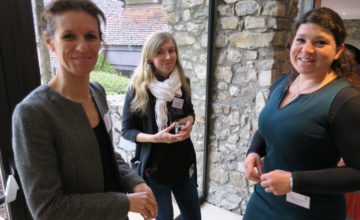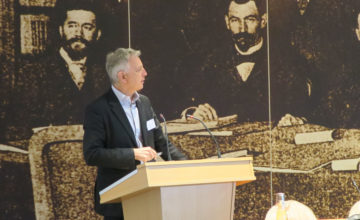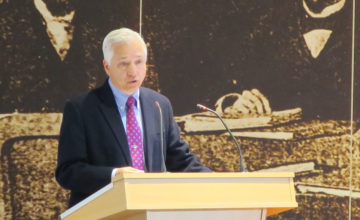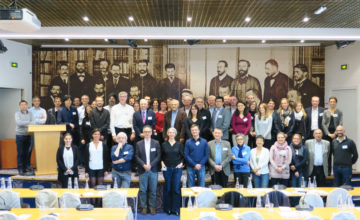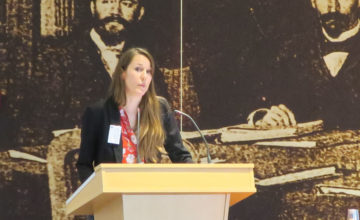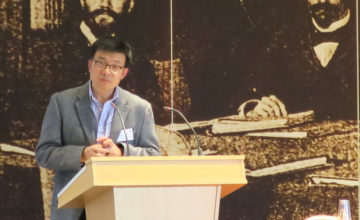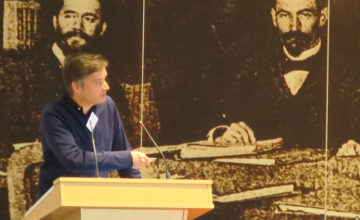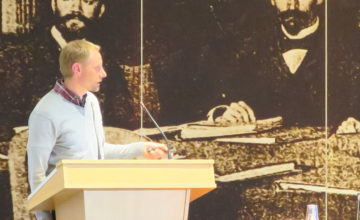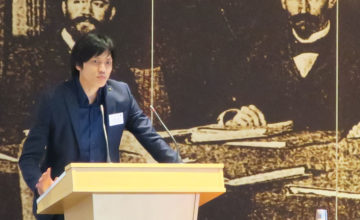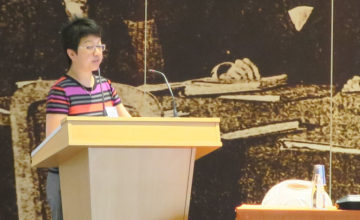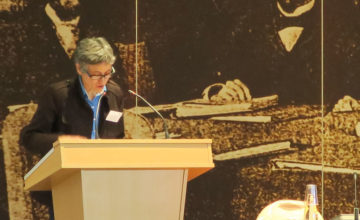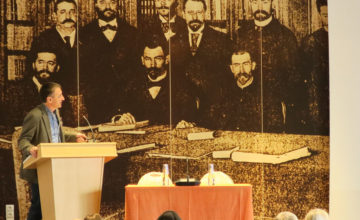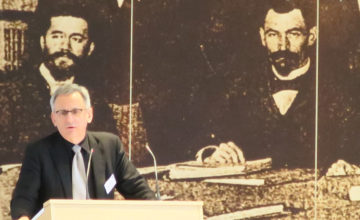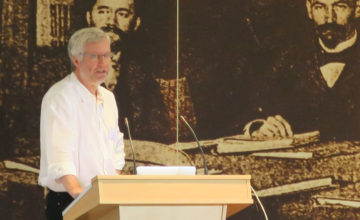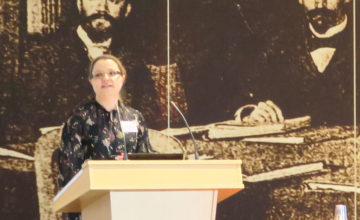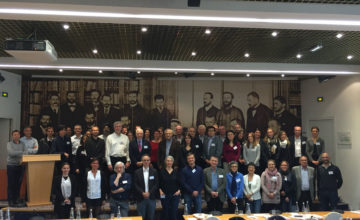-
8:30 - 8:50
Generation of improved humanized mouse models for human infectious diseases
Lenny SHULTZ
Download presentation -
9:10 - 9:30
Humanized mice to study human hematopoietic stem cells differentiation
Claudia WASKOW
Download presentation -
9:50 - 10:10
Next generation humanized mouse models for normal and malignant hematopoiesis
Alexandre THEOCHARIDES
Download presentation -
11:00 - 11:40
Key-note address: Genetic engineering of human hematopoiesis and its preclinical modeling in hematochimeric mice
Luigi NALDINI
Download presentation
Mérieux Foundation event
Humanized models to study immunity and to accelerate the development of new solutions for human health
April 26-28, 2017 - Les Pensieres Center for Global Health, Veyrier-du-Lac (France)
Summary
Translational research has emerged as one of the main pillars of the development of new vaccines or drugs over the past decade. It is indeed an absolute requirement for the pharmaceutical industries to better de-risk their candidates between preclinical proof of concept (PoC) in conventional animal models and the uncertain outcome of an efficacy study that usually takes place several years to a decade after, implying several hundreds of millions of dollars invested with a probability of success very often poorly controlled. A large number of parameters differ in the course of an immune response between laboratory animal models and human beings. Some of them are intrinsic to the host such as genetic polymorphism, metabolisms, physiology and specificities of the immune system (innate immune receptor distributions, differences in cell subset phenotype and functions, some variations in lymphatic or organic immune macro- and micro-architectures …). Others are environmental such as susceptibility or resistance to infections, co evolution of the host with the pathogen, impact of stress stimuli, role of the flora or of concomitant infections and immune history.
The development of new models to refine candidate selections has been the focus of many efforts to credentialize the preclinical PoC established in classical in vivo models such as laboratory mouse strains and non-human primates. This includes the use of simple to very sophisticated in vitro models based on human cells to test the potency of the compounds in vitro (from PBMCs in a well, to 3D cell cultures and organs on a chip). The latters, limited by their inherent in vitro attributes, have been nicely complemented by the development of animal models which have been humanized in order to better mimic the human responses so as to hopefully better predict outcomes in the targeted populations. Efforts towards the successful engraftment of human genes or gene loci first, of human hematolymphoid cells thereafter and finally of other human tissue cell types, started in the early 1990’s. Since then, the discovery and introduction of multiple targeted mutations into the host have continuously improved the quality and duration of such genetic, cellular and tissue engraftments.
The symposiums will be dedicated to the review of the most recent advancement in the development of such chimeric animal models and the impacts of the improvements of their humanization on the translation of new drug, mabs or vaccine candidates as well on the discovery of mode of actions, the identification of correlates of protection and of relevant biomarkers to human diseases, in the fields of oncology, autoimmunity, inflammatory and infectious diseases.
Download the programProgram
Day 1 Thursday, April 27
Day 2 Friday, April 28
Session 1 New development for the construction of humanized mice
Jim DI SANTO
Session 2 Humanized mouse models for the study of the physiopathology of infectious diseases
Nicolas BURDIN & Jacques LOUIS
-
14:00 - 14:20
Humanized mice to study the role of lymphocyte trafficking in HIV dissemination
Maud DERUAZ
Download presentation -
15:50 - 16:10
Animal models of human oncogenic gamma-herpesvirus infection
Christian MUNZ
Download presentation -
17:10 - 17:30
Application of humanized mice models in exploring novel therapy strategies against human diseases
Jian ZHENG
Download presentation
Session 3a) Humanized mouse models for the study of cancers development and therapy (personalized medicine). Tumors of the hemopoietic origin.
Alexandre THEOCHARIDES
-
8:30 - 8:50
The use of the AML xenograft model to translate leukemia stem cell biology to the clinic
Jean WANG
Download presentation -
9:50 - 10:10
A leukemia xenograft model that is representative of de novo drug resistant and very high risk ALL in NOD/SCID/gamma null mice
Jean-Pierre BOURQUIN
Download presentation
Session 4 Humanized mice models for the study of the human immune-induced diseases in humans
Jacques BANCHEREAU
-
14:00 - 14:20
A humanized mouse model to study insulin-specific tolerance and islet autoimmunity
Carolin DANIEL
Download presentation

